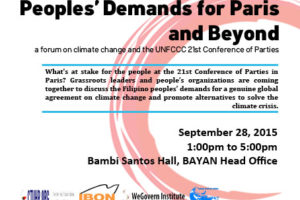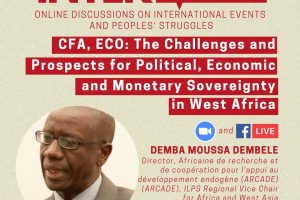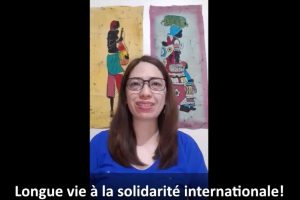The Civil Society Caucus for Climate Justice will provide a parallel people-led process for civil society, especially those unable to participate at the 27th Conference of Parties (COP) of the United Nations Framework Convention on Climate Change (UNFCCC) taking place at Sharm El-Sheikh, Egypt from 6 to 18 November, 2022. The activity intends to surface grassroots analyses of the climate crisis, its impacts and consequences to human rights and development of the most affected peoples and areas, and their key demands to decision makers at the UN climate negotiations, and conduct independent civil society actions. It also aims to develop initial strategies for conducting coordinated action and mobilization of civil society for COP28 in Dubai, UAE. The Caucus situates itself within the broader effort of the global climate justice movement to build enabling spaces for alternative articulation for common messages and action to challenge the UN climate negotiations.
The Caucus will be holding three plenary sessions tackling key people’s issues and concerns in the struggle for climate justice. The sessions will be held in hybrid format.
Plenary 1: On the socio-economic situation and climate priorities of the Middle East and North Africa (MENA)
The session aims to highlight people’s socioeconomic and climate issues and struggles in the region where COP27 is currently being held. Major global policy meetings will also be held in the region next year, including COP28.
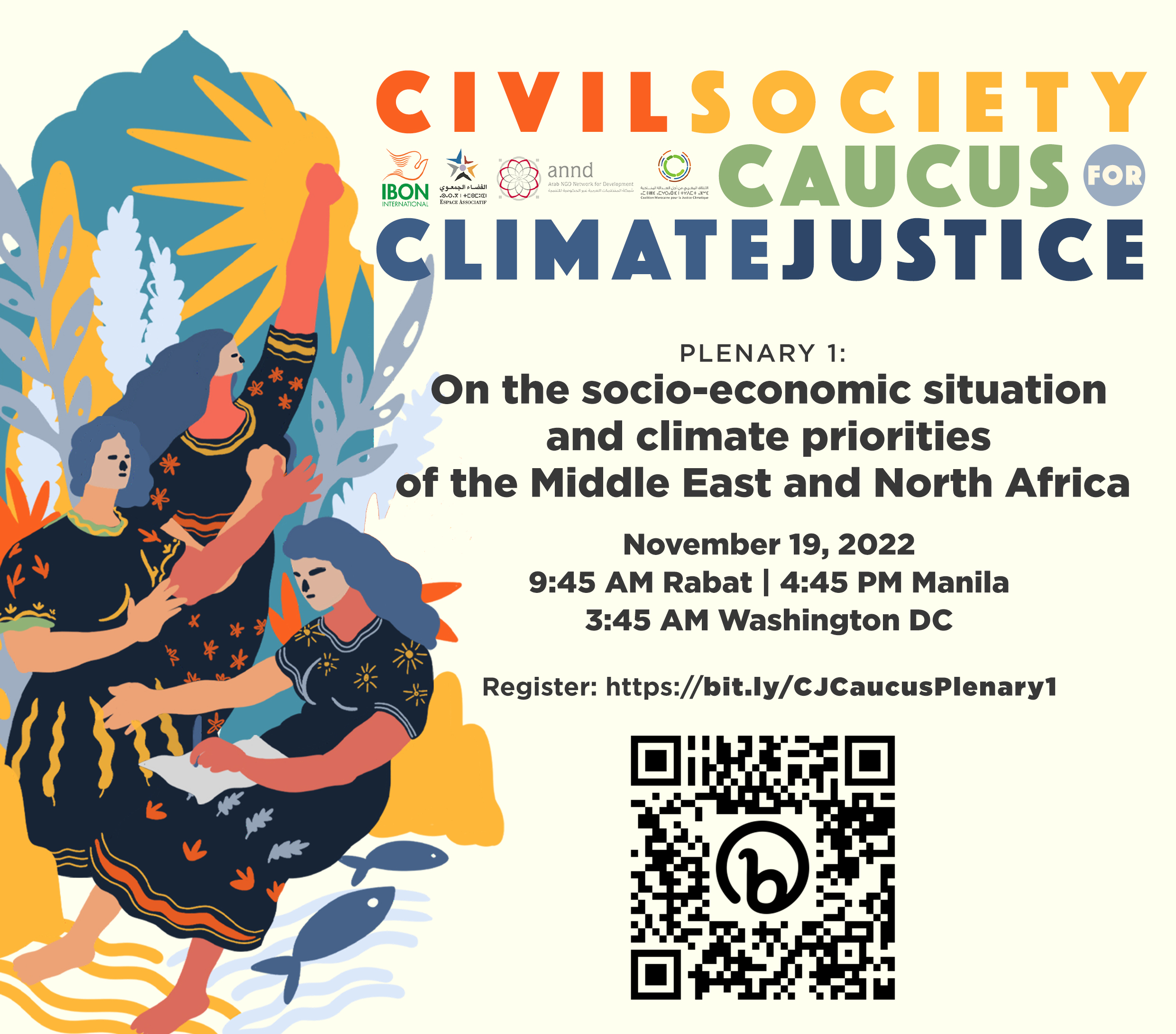
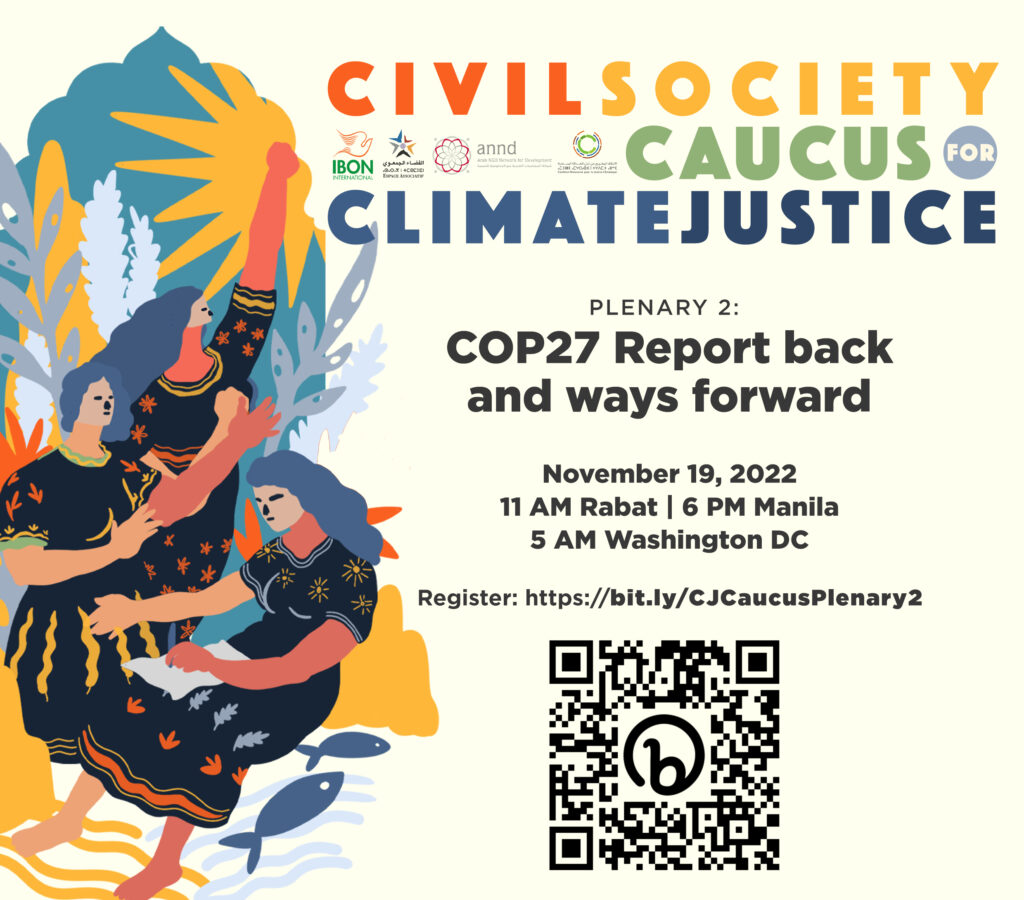
Plenary 2: COP27 Report back and ways forward
Plenary 3: Advancing climate justice through system change (thematic and sectoral issues)
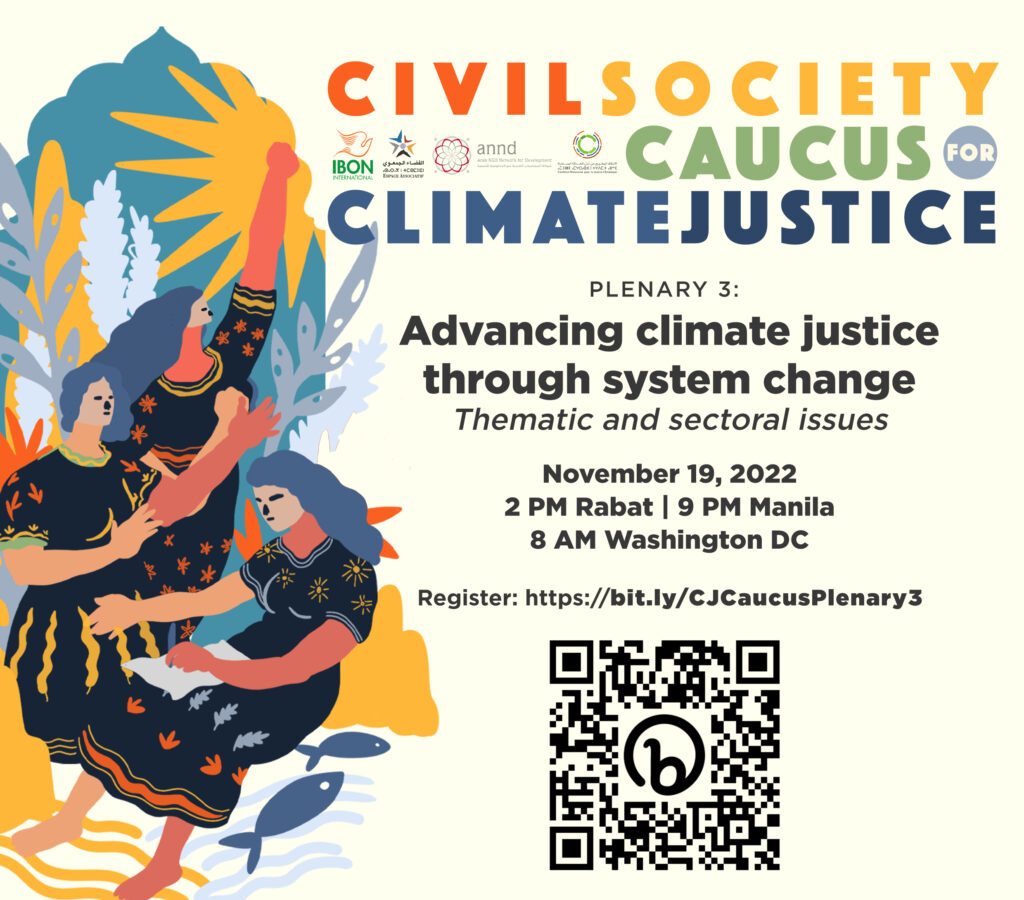
![You are currently viewing [EVENT] Civil Society Caucus for Climate Justice](https://iboninternational.org/wp-content/uploads/2022/11/CSO-CAUCUS-CJ.jpg)

